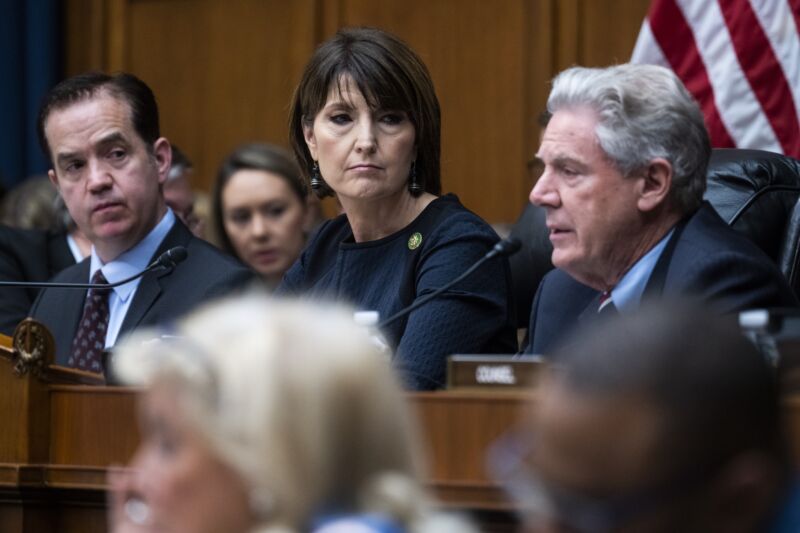
Getty Images | Tom Williams
A proposed repeal of Section 230 is designed to punish Big Tech but is also facing opposition from library associations, the Internet Archive, the owner of Wikipedia, and advocacy groups from across the political spectrum who say a repeal is bad for online speech. Opposition poured in before a House hearing today on the bipartisan plan to “sunset” Section 230 of the Communications Decency Act, which gives online platforms immunity from lawsuits over how they moderate user-submitted content.
Lawmakers defended the proposed repeal. House Commerce Committee Ranking Member Frank Pallone, Jr. (D-N.J.) today said that “Section 230 has outlived its usefulness and has played an outsized role in creating today’s ‘profits over people’ Internet” and criticized what he called “Big Tech’s constant scare tactics about reforming Section 230.”
Pallone teamed up with Commerce Committee Chair Cathy McMorris Rodgers (R-Wash.) to propose the Section 230 repeal. The lawmakers haven’t come up with a replacement for the law, a tactic that some critics predict will lead to legislative chaos. A hearing memo said the draft bill “would sunset Section 230 of the Communications Act effective on December 31, 2025,” but claimed the “intent of the legislation is not to have Section 230 actually sunset, but to encourage all technology companies to work with Congress to advance a long-term reform solution to Section 230.”
McMorris Rodgers and Pallone wrote a Wall Street Journal op-ed alleging that “Big Tech companies are exploiting the law to shield them from any responsibility or accountability as their platforms inflict immense harm on Americans, especially children.”
While politicians are focused on Big Tech, one letter sent to lawmakers said the proposal “fails to recognize the indispensable role that Section 230 plays in fostering a diverse and innovative digital landscape across many industries that extends far beyond the realm of only large technology corporations.”
Library and Internet groups defend Section 230
The letter was sent by the American Library Association, the Association of Research Libraries, the Consumer Technology Association, Creative Commons, Educause, Incompas, the Internet Archive, the Internet Infrastructure Coalition, the Internet Society, and the Wikimedia Foundation.
Section 230 is essential for small and medium-sized tech businesses, educational institutions, libraries, ISPs, and many others, the letter said:
By narrowly framing the debate around the interests of “Big Tech,” there is a risk of misunderstanding the far-reaching implications of altering or dismantling Section 230. The heaviest costs and burdens of such action would fall on the millions of stakeholders we represent who, unlike large companies, do not have the resources to navigate a flood of content-based lawsuits. While it may seem that such changes will not “break the Internet,” this perspective overlooks the intricate interplay of legal liability and innovation that underpins the entire digital infrastructure.
Opposition this week also came from the Electronic Frontier Foundation, which said that “Section 230 is essential to protecting individuals’ ability to speak, organize, and create online.”
“The law is not a shield for Big Tech,” the EFF wrote. “Critically, the law benefits the millions of users who don’t have the resources to build and host their own blogs, email services, or social media sites, and instead rely on services to host that speech. Section 230 also benefits thousands of small online services that host speech. Those people are being shut out as the bill sponsors pursue a dangerously misguided policy.”
The EFF said it worries that if Big Tech helps Congress write a Section 230 replacement, the new law won’t “protect and benefit Internet users, as Section 230 does currently.”

